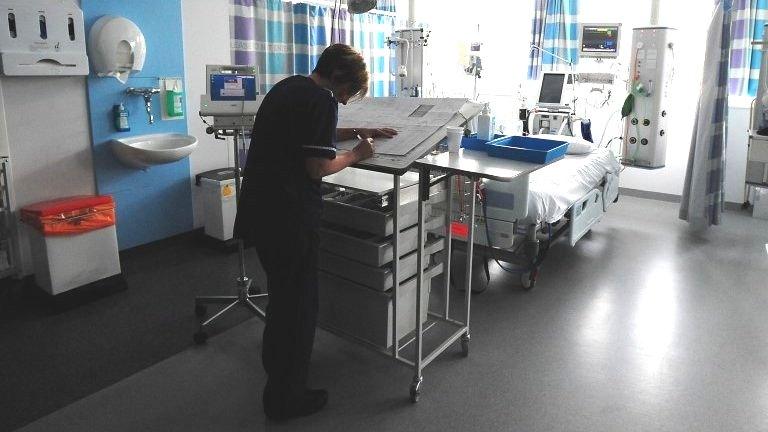What Addenbrooke's tells us about state of NHS
- Published
- comments

The idea that Cambridge's world-renowned Addenbrooke's Hospital has been branded a failure by regulators is a jolt to the system. But perhaps equally as worrying is that it happened so quickly.
A year ago, the trust that runs the hospital - Cambridge University Hospitals NHS Foundation Trust - wasn't even on the Care Quality Commission's radar in terms of being a failing centre.
In fact, two years ago as the regulator was embarking on its new inspection regime it was among the band of hospitals considered to be the safest, according to the risk-rating system at the time.
But now a hospital that can boast of being a centre of excellence for major trauma, transplants, cancer, neurosurgery, genetics and paediatrics, has been judged to be a basket case and will join the 12 other failing hospitals already placed in special measures.
So what does this tell us about the state of health of the NHS? Sir Mike Richards, the CQC's chief inspector of hospitals, believes Addenbrooke's problems are largely of its own making, criticising the trust's management for "losing grip".
Certainly it seems to have made mistakes - as the troubles with its £200m computerised patient records programme illustrates - but it's hard to escape the feeling that this is just the tip of the iceberg.
While the scale of the problems at Addenbrooke's may set it apart - it was running up deficits of over £1m a week - the nature of many of those difficulties are, worryingly, all too familiar among the 162 hospital trusts in England.

A system under pressure
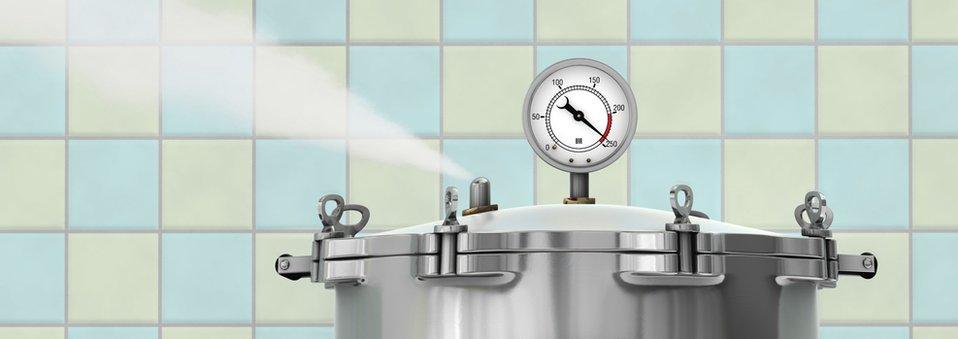
Nearly half of trusts (all types) finished last year in deficit, with an overall deficit standing at £818m
Forecasts from finance directors gathered by the King's Fund show two-thirds are predicting a deficit this year, with the worst problems seen in hospital trusts, where one in 10 is saying they are likely to slip into the red
The four-hour A&E target was missed from October to June, with last winter being the worst since 2004
The numbers waiting for non-emergency operations, such as knee and hip replacements, is 3.3 million - the highest level since 2008
The target wait for diagnostic services has not been met for 18 months
The 62-day cancer waiting time target has been missed for the past 15 months

Rising demand led to the trust increasing spending on agency staff, which meant costs spiralled and care suffered, with nurses working on wards without having the adequate skills needed for what was being asked of them.
Bottlenecks were seen as the hospital struggled to discharge patients (partly because of the lack of services in the community) and bed occupancy levels rose, while pressure on surgical services meant waiting times grew.
Or - in the words of the chief inspector - "a vicious cycle" developed.
But these problems are mirrored elsewhere. When Barts Health NHS Trust - the biggest hospital trust in the country - was placed in special measures earlier this year, the regulator also cited staff shortages and waiting times.
These issues are not unique to failing hospitals, however. Key waiting time targets are being missed or have been missed in cancer, A&E and for routine operations in recent months.
Great leadership
Meanwhile, deficits continue to grow. Last year was the worst for a decade, with NHS organisations (hospitals, mental health trusts, community providers and ambulances combined) finishing over £800m in deficit. The sector only managed to finish in the black because of a £250m bailout from the Treasury and raiding the capital budget, which is meant to be spent on buildings.
This year, finance directors have told the King's Fund think tank it is likely to get worse.
Of course, it is not all down to circumstances. The CQC is rightly pointing out there are trusts out there still managing to run a "good" hospital.
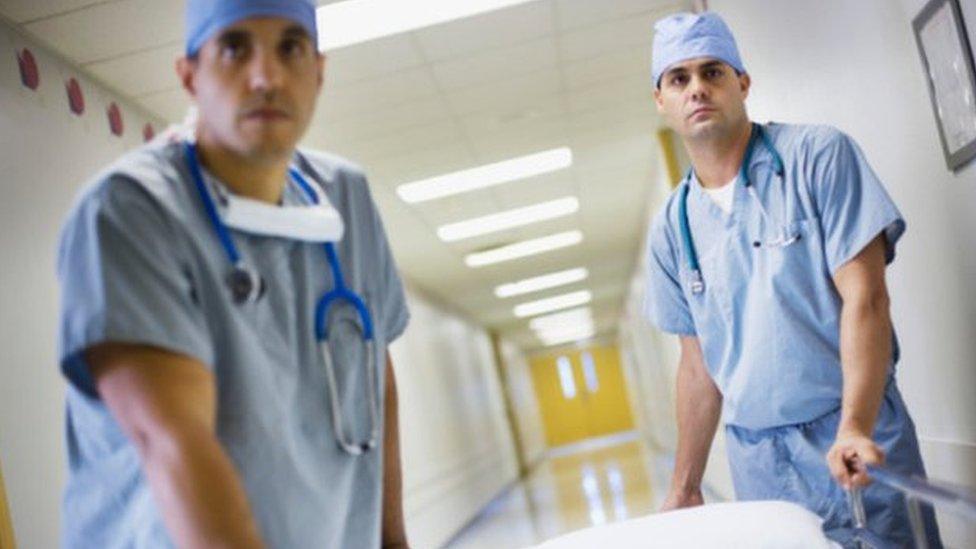
That is true. To date, there are 22 hospital trusts that have been rated good by the CQC and two outstanding. The only problem is that three times that number have been judged as requiring improvement or inadequate (although it must be said that the regulator has tended to focus on the trusts it has suspicions about first, so you would expect there to be a greater proportion of poor performers given less than two-thirds of the hospital sector has been inspected).
The lessons from those that are doing well is that great leadership can make a difference. However, the nature of great means that it's not found everywhere.
There is a growing consensus that the NHS is struggling to recruit or develop great leaders. This was made clear in the recent review of management, external by ex-Marks and Spencer boss Lord Rose.
The issue is also illustrated by the number of vacant posts. Nearly one in five hospital trusts does not have a permanent chief executive in post, according to the Health Service Journal., external
This was an issue that was raised by experts last week at the launch of the Spending Review submissions by the three leading think tanks, the King's Fund, Health Foundation and Nuffield Trust.
They suggested high-calibre leaders may be being put off because the outlook in the sector was so bleak. Lib Dem MP Norman Lamb, a care minister in the coalition government, went even further this weekend in an interview with the Observer newspaper, warning the NHS was heading for a "crash", external.
That may be the doomsday scenario, but the fact it is getting mentioned is a sign of how difficult things are getting.
- Published16 July 2015
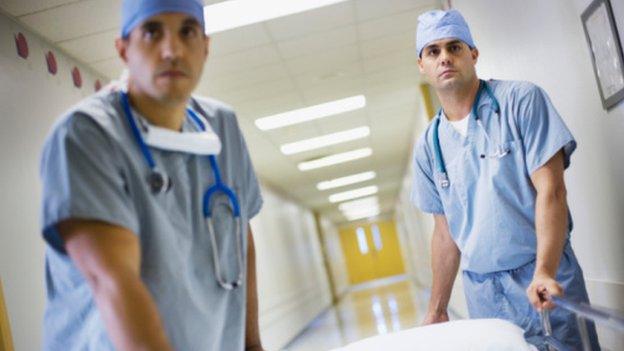
- Published16 July 2015
- Published21 June 2015
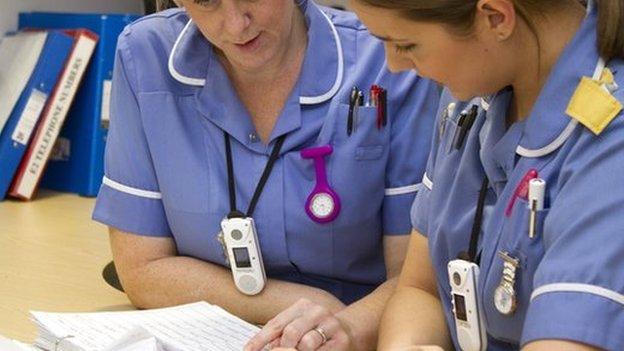
- Published19 June 2015
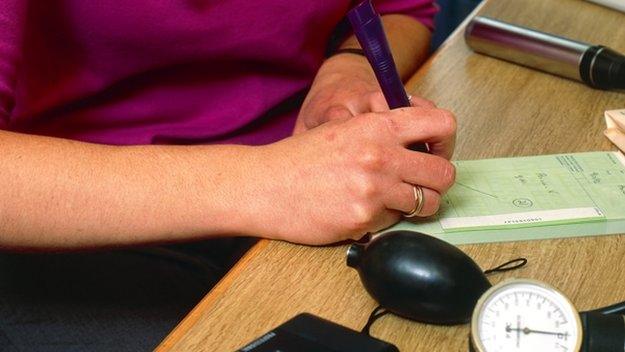
- Published19 June 2015
- Published30 September 2014
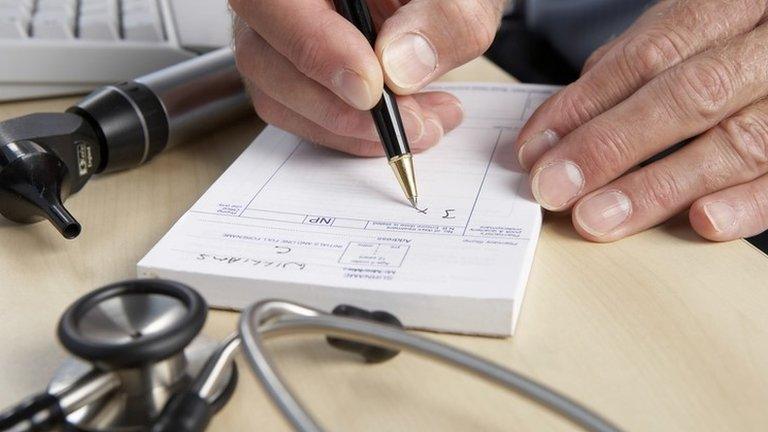
- Published15 December 2013
